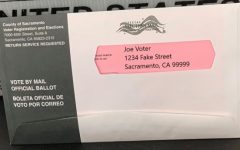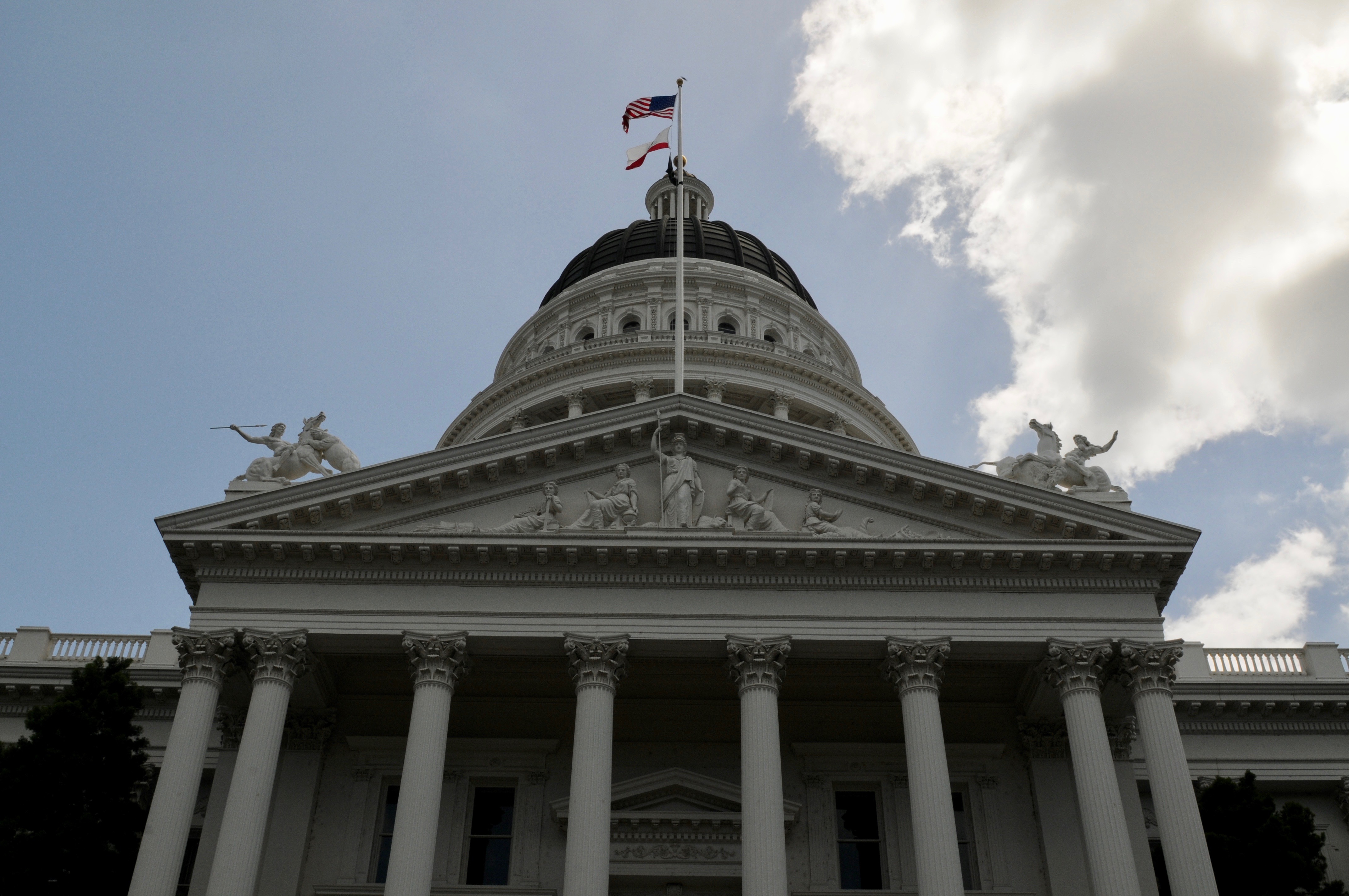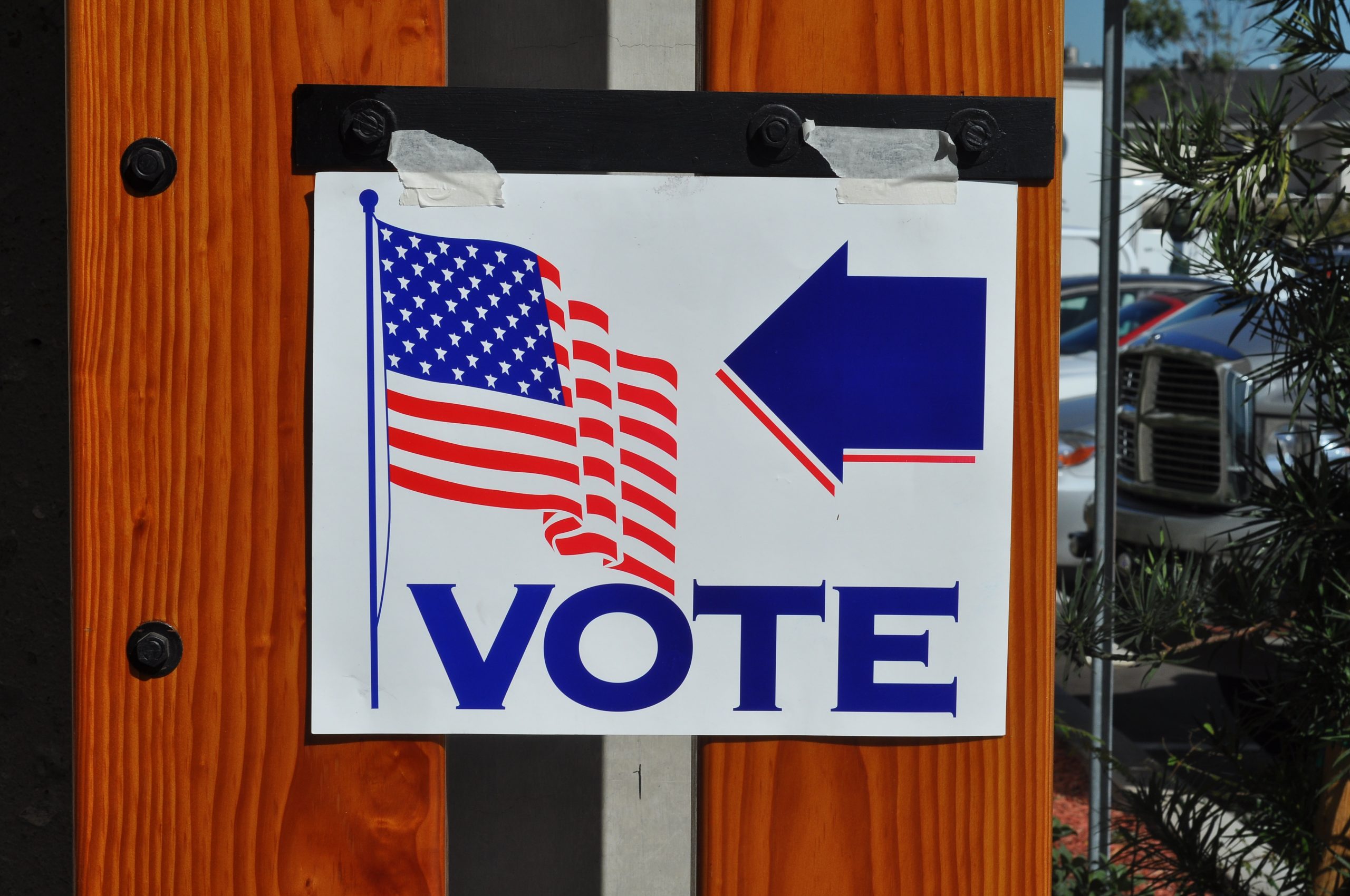
California State Capitol. (Photo: Kevin Sanders for California Globe)
California’s Rules for Military and Overseas Voters
Secretary of State is required to make available to military or overseas voters voter registration procedures and procedures for casting ballots
By Chris Micheli, February 20, 2022 3:13 pm
California’s Elections Code provides extensive rules for military and overseas voters including applications and voting procedures. These provisions are contained in Division 3, Chapter 2. Section 3101 requires the Secretary of State to see that Chapter 2 is properly enforced. The Secretary of State is required to make available to any person who qualifies as a military or overseas voter information regarding voter registration procedures and procedures for casting ballots.
The elections official for each district must ensure that his or her jurisdiction has available a system that would allow a military or overseas voter to electronically request and receive a vote by mail application, an unvoted ballot, and other information. In addition, the Secretary of State is required to develop standardized military or overseas voter voting materials.
The Secretary of State must prescribe the form and content of a declaration for use by a military or overseas voter to swear or affirm specific representations pertaining to the voter’s identity, eligibility to vote, and status as a military or overseas voter, and further prescribe requirements for the timely and proper completion of a military or overseas voter’s ballot.
The declaration must be based on the declaration prescribed to accompany a federal write-in absentee ballot. The elections official for each jurisdiction must ensure that a form for the execution of the declaration, including an indication of the date of execution of the declaration, is a prominent part of all balloting materials for which the declaration is required.
Section 3102 provides that any voter who qualifies as a military or overseas voter has the right to register for, and to vote by a vote by mail ballot in, any election within the state, including any general, special, or primary election for any federal or statewide office or state ballot measure that is voted on statewide.
When a military or overseas voter applies for a vote by mail ballot, the application must be deemed to be an affidavit of registration and an application for permanent vote by mail status. The application must be completed by the voter and contain the voter’s name; the voter’s date of birth; the address of the voter’s residence in the state when the voter was last living within the territorial limits of the United States or the District of Columbia or, if qualified as a military or overseas voter, the address of the voter’s parent or legal guardian when the parent or legal guardian was last living within the territorial limits of the United States or the District of Columbia; the address to which the ballot is to be sent; the voter’s political party preference or a statement that the voter declines to disclose a political party preference; and the voter’s signature.
If an elections official receives a completed federal postcard application from a person qualified as a military or overseas voter, the application is deemed to be an affidavit of registration, an application for a vote by mail ballot, and an application for permanent vote by mail status.
If the applicant is not a resident of the county to which he or she has applied, the elections official receiving an application from a military or overseas voter must forward it immediately to the county in which the applicant resided when he or she was last living within the territorial limits of the United States.
An application must be received by the elections official having jurisdiction over the election no later than seven days prior to the date of the election if the application is made solely as an application for a vote by mail ballot. An application is deemed to be an affidavit of registration and effective only if it is postmarked on or before the 15th day prior to the election.
Section 3103 provides that, upon timely receipt of an application received, the elections official must examine the application to ascertain that it is properly executed in accordance with this code. If the elections official is satisfied of this fact, the applicant must be deemed a duly registered voter as of the date appearing on the application to the same extent and with the same effect as though he or she had registered in proper time prior to the election.
Section 3104 requires that applications for the ballots of military or overseas voters must be received and the ballots must be received and canvassed, at the same time and under the same procedure as vote by mail ballots.
Section 3105 specifies that any application made that is received by the elections official prior to the 60th day before the election must be kept and processed on or after the 60th day before the election.
Section 3106 provides that a military or overseas voter who is living outside of the territorial limits of the United States, or is called for military service within the United States on or after the final date to make application for a vote by mail ballot, may return his or her ballot by facsimile transmission.
To be counted, the ballot returned by facsimile transmission must be received by the voter’s elections official no later than the closing of the polls on election day and be accompanied by an identification envelope containing all of the information required and an oath of voter declaration in substantially the following form:
|
“OATH OF VOTER |
|
I,, acknowledge that by returning my voted |
|
ballot by facsimile transmission I have waived my right to have my ballot |
|
kept secret. Nevertheless, I understand that, as with any vote by mail |
|
voter, my signature, whether on this oath of voter form or my identification |
|
envelope, will be permanently separated from my voted ballot to maintain |
|
its secrecy at the outset of the tabulation process and thereafter. |
|
My residence address (last U.S. residence for voter qualification purposes) is(Street Address) _____ _____ (City) _____ _____ (ZIP Code). |
|
My current mailing address is(Street Address) _____ (City) _____ _____ (ZIP Code). |
|
My email address is _________________. My facsimile transmission |
|
I am a resident of __________ County, State of California, or am qualified |
|
I declare under penalty of perjury under the laws of the State of California that the foregoing is true and correct. |
|
Dated this __________ day of ______, 20_____. |
|
(Signature) |
|
(voter)(power of attorney cannot be accepted) |
|
YOUR BALLOT CANNOT BE COUNTED UNLESS YOU SIGN THE |
Notwithstanding the voter’s waiver of the right to a secret ballot, each elections official must adopt appropriate procedures to protect the secrecy of ballots returned by facsimile transmission. Upon receipt of a ballot returned by facsimile transmission, the elections official must determine the voter’s eligibility to vote by comparing the signature on the return information with the signature on the voter’s affidavit of registration or any signature permitted for comparison. The ballot must be duplicated and all materials preserved according to procedures set forth in this code.
Section 3107 provides that, when the application is received by an elections official, other than a county elections official, the elections official receiving it must, after the election, transmit it to the county elections official who, if the application is not subject to rejection, must file the original. If an application is rejected, it must be returned to the applicant with the reason for rejection endorsed on it, together with a new blank application.
Section 3108 specifies that a military or overseas voter who is qualified may apply in person to the voter’s elections official for permission to register after the closing date of registration under specified conditions.
Section 3109 states that, if any military or overseas voter to whom a vote by mail ballot has been mailed and which ballot has not been voted by him or her returns to the county in which he or she is registered, he or she may apply for a second vote by mail. The elections official must then issue another vote by mail ballot to the voter, or the elections official must certify to the precinct board that the voter is eligible to vote in the election.
Section 3110 specifies that, if any military or overseas voter returns to the county of his or her residence, after the final day for making application for a vote by mail ballot, he or she may appear before the elections official and make application for registration, vote by mail ballot, or both. The elections official is required to register the voter, if he or she is not registered, and deliver to him or her a vote by mail ballot which may be voted in the elections official’s office or voted outside the elections official’s office on or before the close of the polls on the day of election and returned as are other vote by mail ballots.
Section 3111 provides that, if a military or overseas voter is unable to appear at his or her polling place because of being recalled to service after the final day for making application for a vote by mail ballot, but before 5 p.m. on the day before the day of election, he or she may appear before the elections official in the county in which the military or overseas voter is registered or, if within the state, in the county in which he or she is recalled to service and make application for a vote by mail ballot, which may be submitted by facsimile, or by electronic mail or online transmission if the elections official makes the transmission option available.
To be counted, the ballot must be returned to the elections official’s office in person, by facsimile transmission, or by an authorized person on or before the close of the polls on the day of the election. If the military or overseas voter appears in the county in which he or she is recalled to service, rather than the county to which he or she is registered, the elections official must coordinate with the elections official in the county in which the military or overseas voter is registered to provide the ballot that contains the appropriate measures and races for the precinct in which the military or overseas voter is registered.
Section 3112 provides that, whenever by any statute of the United States, provision is made for vote by mail, an application for a vote by mail ballot made under that law may be given the same effect as an application for a vote by mail ballot made under this code.
Section 3113 specifies that, if by any act of Congress which is now or may become effective during the effective period of this section, provision is made for voting by military or overseas voters, that act must control and be superior to any conflicting provisions of this code, and all state, county, municipal, and district officers who are charged with the performance of duties with reference to the election laws of this state must perform the duties and discharge the obligations placed upon them by that act of Congress.
Section 3114 specifies that, for an election for which this state has not received a waiver not sooner than 60 days but not later than 45 days before the election, the elections official must transmit a ballot and balloting materials to each military or overseas voter who, by that date, submits a valid ballot application.
Section 3106 provides that a military or overseas voter may use a federal write-in absentee ballot to vote for all offices and ballot measures. Section 3116.5 requires a county elections official to permit a military or overseas voter to cast his or her ballot using a certified remote accessible vote by mail system.
Section 3117 requires a valid ballot case to be counted if it is received by the elections official in accordance with existing law. Section 3118 requires the elections official to include with the ballot a declaration to be signed by the military or overseas voter that a material misstatement of fact in completing the ballot may be grounds for a conviction of perjury under the laws of this state or the United States.
Section 3119 requires elections officials to implement an electronic free access system by which a military or overseas voter may determine by telephone, electronic mail, or Internet whether the military or overseas voter’s ballot has been received.
Section 3120 requires the elections official to request an electronic mail address from each military or overseas voter who registers to vote. A military or overseas voter who provides an electronic mail address may request that his or her application for a ballot be considered a standing request for electronic delivery of a ballot for all elections conducted in the jurisdiction in which he or she is eligible to vote.
Section 3121 requires, as soon as practicable before an election, each elections official to publish on his or her Internet Web site a list of all of the ballot measures and federal, state, and local offices that, as of that date, the elections official expects to be on the ballot on the date of the election.
Section 3122 provides that, if a military or overseas voter’s mistake or omission in the completion of a document under this chapter does not prevent determining whether a military or overseas voter is eligible to vote, the mistake or omission does not invalidate the document.
Section 3123 authorizes a court to issue an injunction or grant other equitable relief appropriate to ensure substantial compliance with, or enforce, this chapter on application by either a military or overseas voter or an elections official in this state.
- Legislative Intent Does Not Equate to a Mandate - April 27, 2024
- Frequently Asked Questions about State Agency Ethics Training - April 26, 2024
- Frequently Asked Questions about When Elected Officials Take Office - April 25, 2024





Section 3101 requires the Secretary of State to see that Chapter 2 is properly enforced? Many of us do not have faith in California’s current Secretary of State Shirley Weber to properly enforce California election laws? Weber has exhibited unethical behavior in the past such disqualifying Larry Elder from running for office by falsely claiming that he had filed incomplete redacted and/or unredacted income tax returns even though he had filed both redacted and unredacted tax returns. Shirley Weber is a member of the deep-state/dark-cult Democrat cabal who is not to be trusted?